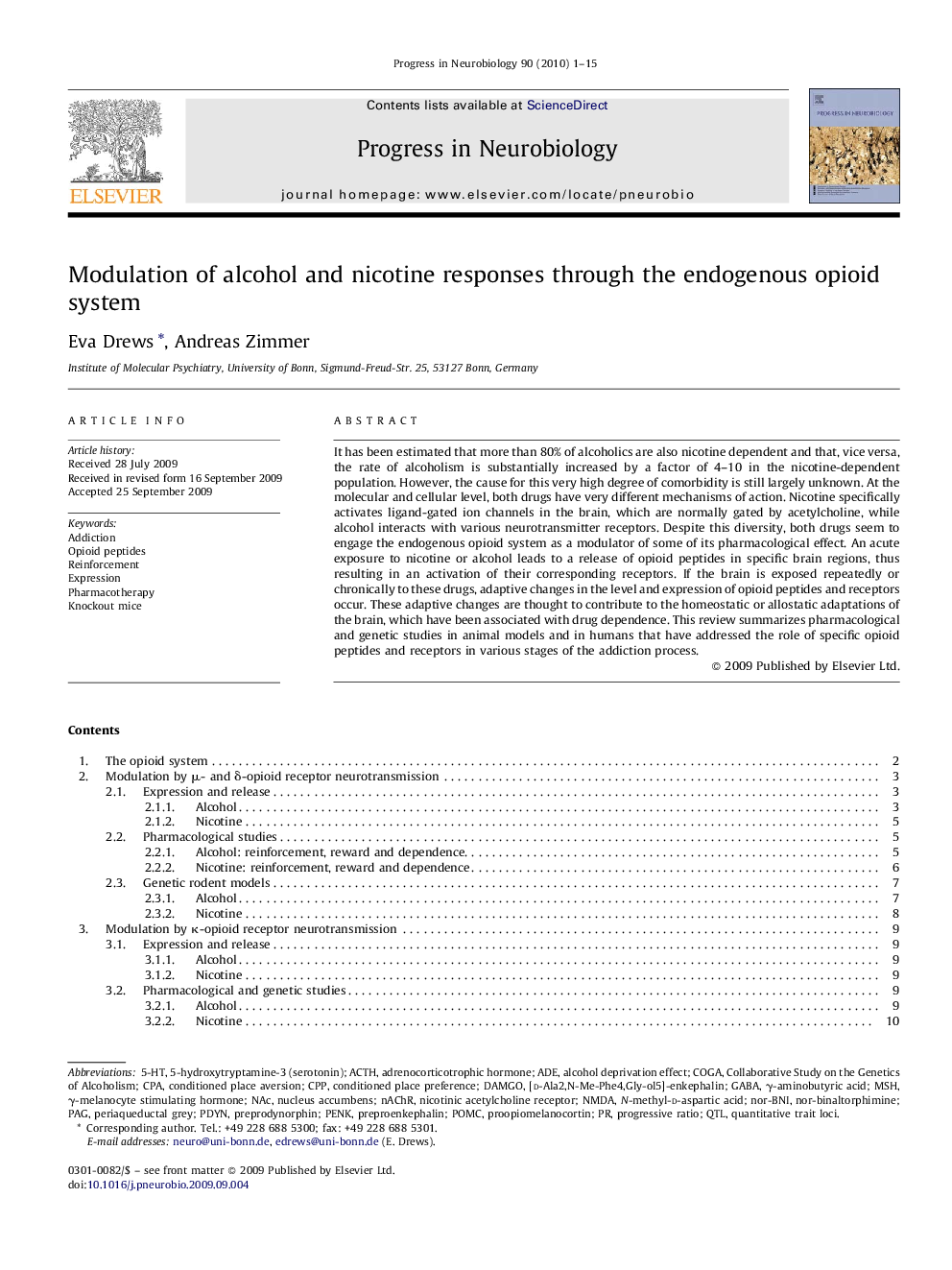| کد مقاله | کد نشریه | سال انتشار | مقاله انگلیسی | نسخه تمام متن |
|---|---|---|---|---|
| 4353578 | 1298477 | 2010 | 15 صفحه PDF | دانلود رایگان |

It has been estimated that more than 80% of alcoholics are also nicotine dependent and that, vice versa, the rate of alcoholism is substantially increased by a factor of 4–10 in the nicotine-dependent population. However, the cause for this very high degree of comorbidity is still largely unknown. At the molecular and cellular level, both drugs have very different mechanisms of action. Nicotine specifically activates ligand-gated ion channels in the brain, which are normally gated by acetylcholine, while alcohol interacts with various neurotransmitter receptors. Despite this diversity, both drugs seem to engage the endogenous opioid system as a modulator of some of its pharmacological effect. An acute exposure to nicotine or alcohol leads to a release of opioid peptides in specific brain regions, thus resulting in an activation of their corresponding receptors. If the brain is exposed repeatedly or chronically to these drugs, adaptive changes in the level and expression of opioid peptides and receptors occur. These adaptive changes are thought to contribute to the homeostatic or allostatic adaptations of the brain, which have been associated with drug dependence. This review summarizes pharmacological and genetic studies in animal models and in humans that have addressed the role of specific opioid peptides and receptors in various stages of the addiction process.
Journal: Progress in Neurobiology - Volume 90, Issue 1, 11 January 2010, Pages 1–15